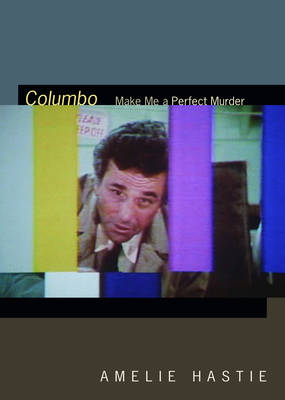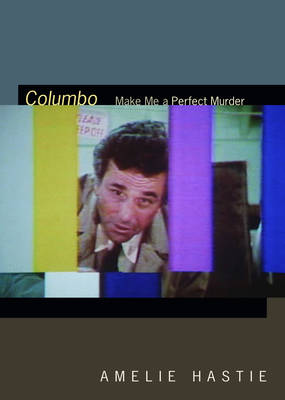
Bedankt voor het vertrouwen het afgelopen jaar! Om jou te bedanken bieden we GRATIS verzending (in België) aan op alles gedurende de hele maand januari.
- Afhalen na 1 uur in een winkel met voorraad
- In januari gratis thuislevering in België
- Ruim aanbod met 7 miljoen producten
Bedankt voor het vertrouwen het afgelopen jaar! Om jou te bedanken bieden we GRATIS verzending (in België) aan op alles gedurende de hele maand januari.
- Afhalen na 1 uur in een winkel met voorraad
- In januari gratis thuislevering in België
- Ruim aanbod met 7 miljoen producten
Zoeken
Omschrijving
For decades, generations of television fans have been enraptured by Lt. Columbo, played by Peter Falk, as he unravels clues to catch killers who believe they are above the law. In her investigation of the 1970s series cocreated by Richard Levinson and William Link, Amelie Hastie explores television history through an emphasis on issues of stardom, authorship, and its interconnections with classical and New Hollywood cinema. Through close textual analysis, attentive to issues of class relations and connections to other work by Falk as well as Levinson and Link, Columbo: Make Me a Perfect Murder sees American television as an intertextual system, from its origins as a commercial broadcast medium to its iterations within contemporary streaming platforms. Ultimately, Hastie argues, in the titular detective's constant state of learning about cultural trends and media forms, Columbo offers viewers the opportunity to learn with him and, through his tutelage, to become detectives of television itself.
Specificaties
Betrokkenen
- Auteur(s):
- Uitgeverij:
Inhoud
- Aantal bladzijden:
- 256
- Taal:
- Engels
- Reeks:
Eigenschappen
- Productcode (EAN):
- 9781478025450
- Verschijningsdatum:
- 6/02/2024
- Uitvoering:
- Paperback
- Formaat:
- Trade paperback (VS)
- Afmetingen:
- 147 mm x 208 mm
- Gewicht:
- 385 g

Alleen bij Standaard Boekhandel
+ 73 punten op je klantenkaart van Standaard Boekhandel
Beoordelingen
We publiceren alleen reviews die voldoen aan de voorwaarden voor reviews. Bekijk onze voorwaarden voor reviews.









